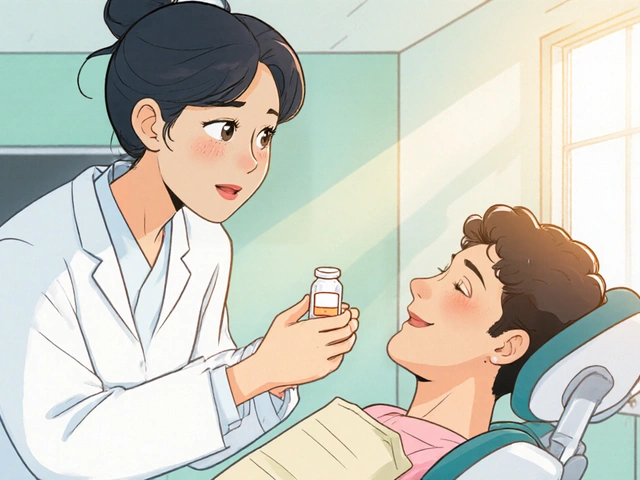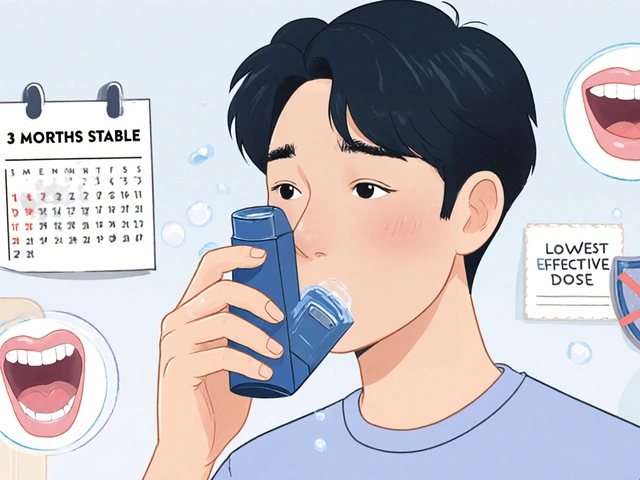Understanding Shingles and Antiviral Medications
Before diving into the role of antiviral medications in shingles treatment, it's important to understand what shingles is and how it can affect our health. Shingles, also known as herpes zoster, is a painful skin rash caused by the reactivation of the varicella-zoster virus, the same virus responsible for chickenpox. This reactivation can occur when our immune system is weakened due to various factors such as age, stress, or illness. Antiviral medications, on the other hand, are drugs designed to treat viral infections by inhibiting the growth and replication of viruses.
In this article, we will explore the role of antiviral medications in shingles treatment, discussing their benefits, side effects, and guidelines for proper use. By understanding how these medications work and how they can help manage shingles, you'll be better equipped to make informed decisions about your health and treatment options.
The Importance of Early Treatment
One of the key factors in effectively managing shingles is beginning antiviral treatment as soon as possible after the onset of symptoms. The earlier treatment is started, the more effective it is in reducing the severity and duration of the rash, as well as lowering the risk of complications. Ideally, antiviral medications should be started within 72 hours of the appearance of the rash. If you suspect you have shingles, it's crucial to consult your healthcare provider promptly to discuss your treatment options.
Early treatment is particularly important for individuals with a higher risk of complications, such as those with weakened immune systems, older adults, and people with chronic medical conditions. By starting antiviral medications early, you can help reduce the likelihood of developing severe pain or other long-term effects associated with shingles.
Commonly Prescribed Antiviral Medications for Shingles
There are three main antiviral medications commonly prescribed for shingles treatment: acyclovir (Zovirax), valacyclovir (Valtrex), and famciclovir (Famvir). These medications are all nucleoside analogues, which means they work by disrupting the replication process of the varicella-zoster virus, thus slowing down its growth and spread in the body. By doing so, antiviral medications help to alleviate the symptoms of shingles and promote faster healing.
Your healthcare provider will determine which medication is best for you based on factors such as your overall health, the severity of your symptoms, and your medical history. It's essential to follow your healthcare provider's instructions regarding the dosage and duration of treatment to ensure the best possible outcome.
Benefits of Antiviral Medications in Shingles Treatment
There are several benefits associated with the use of antiviral medications in shingles treatment. These include:
- Reduced severity and duration of symptoms: By hindering the growth and spread of the varicella-zoster virus, antiviral medications can help to alleviate the pain, itching, and discomfort associated with shingles, as well as shorten the duration of the rash.
- Lower risk of complications: Antiviral medications can reduce the likelihood of developing complications such as postherpetic neuralgia (PHN), a condition characterized by persistent pain in the area of the shingles rash even after it has healed. PHN can be debilitating and severely impact an individual's quality of life, making the prevention of this complication particularly important.
- Faster healing: By inhibiting the replication of the virus, antiviral medications can help to speed up the healing process of the shingles rash, allowing you to return to your normal activities more quickly.
Potential Side Effects of Antiviral Medications
As with any medication, there are potential side effects associated with the use of antiviral drugs in shingles treatment. Some of the most common side effects include:
- Nausea
- Vomiting
- Diarrhea
- Headache
- Dizziness
- Fatigue
While these side effects are generally mild and manageable, it's important to discuss any concerns with your healthcare provider. In rare cases, more severe side effects may occur, such as allergic reactions or kidney problems. If you experience any severe or persistent side effects, contact your healthcare provider immediately.
Supportive Care and Additional Treatment Options
While antiviral medications play a crucial role in shingles treatment, additional supportive care measures and treatments can help to further alleviate symptoms and promote healing. These may include:
- Pain relievers (over-the-counter or prescription)
- Topical creams or ointments to soothe the rash
- Cool compresses applied to the affected area
- Antihistamines to reduce itching
- Rest and relaxation to support the immune system
By combining antiviral medications with supportive care and additional treatments, you can enhance your overall comfort and well-being during the healing process.
Preventing Shingles with Vaccination
One of the most effective ways to prevent shingles is through vaccination. The Centers for Disease Control and Prevention (CDC) recommends the Shingrix vaccine for adults aged 50 and older, regardless of whether they have had shingles before. Shingrix has been shown to be over 90% effective in preventing shingles and its associated complications, such as PHN.
While vaccination cannot guarantee complete protection from shingles, it can significantly reduce your risk of developing the condition and its potential complications. If you fall into the recommended age group or have a heightened risk of shingles, speak with your healthcare provider about the benefits of vaccination.
Conclusion
Antiviral medications play a crucial role in the treatment of shingles, helping to alleviate symptoms, promote faster healing, and reduce the risk of complications. By understanding how these medications work and the benefits they offer, you can make informed decisions about your health and treatment options. Remember, early treatment is key, so if you suspect you have shingles, don't hesitate to consult your healthcare provider for prompt evaluation and guidance.
17 Comments
Write a comment
More Articles

Clonidine in Dentistry: Uses, Benefits, and Practical Guide
Explore how clonidine improves dental procedures by reducing pain, anxiety, and bleeding. Learn dosage, safety, benefits, and practical tips for dentists.

Asthma Steroid Side Effects: How to Reduce Risks and Monitor Your Health
Learn how to minimize side effects from asthma steroid inhalers like thrush, hoarseness, and bone thinning. Discover proven strategies for dose reduction, proper technique, and safer alternatives.
How to Maintain a Healthy Weight with a Skeletal Muscle Condition
Maintaining a healthy weight with a skeletal muscle condition can be challenging, but it's not impossible. It's essential to focus on a balanced diet, including plenty of fruits, vegetables, lean proteins, and whole grains. Regular, low-impact exercise like swimming, yoga, or walking can help strengthen muscles and improve overall fitness. Don't forget to consult with your doctor or a physical therapist to create a tailored exercise plan that suits your specific needs. Finally, remember to monitor your progress and listen to your body to ensure you're making consistent, healthy choices.
Chelsea Hackbarth
April 29, 2023 AT 07:59Shingles is caused by the reactivation of the same virus that gives us chickenpox, and the best way to keep it in check is through timely antiviral therapy 😊. Antiviral drugs such as acyclovir, valacyclovir, and famciclovir work by inhibiting viral DNA polymerase, which slows the replication of VZV. Starting treatment within the first 72 hours can cut the rash duration by up to 50 % and sharply reduce the risk of post‑herpetic neuralgia. Studies show that patients who begin therapy early report lower pain scores and faster return to normal activity. The typical dosage for valacyclovir is 1 g three times daily for seven days, which is convenient compared to the five‑times‑daily regimen of acyclovir. Famciclovir offers a similar efficacy profile with a dose of 500 mg three times daily, making adherence easier for many. Common side effects like nausea, headache, and mild kidney irritation are usually reversible once the medication is stopped. Hydration and avoiding concurrent nephrotoxic drugs can further protect renal function during treatment. For patients with compromised immunity, a longer course or higher dose may be warranted, always under physician supervision. Vaccination with Shingrix remains the most effective preventive measure, boasting over 90 % efficacy in adults over 50. Even if you’ve had shingles before, the vaccine can boost immunity and lower the chance of recurrence. It’s crucial to discuss any history of kidney disease with your doctor before starting antivirals, as dose adjustments might be needed. Drug interactions, especially with chemotherapy agents, should be reviewed to avoid adverse effects. Topical treatments and cool compresses can provide additional symptom relief alongside systemic antivirals. Pain control with gabapentin or lidocaine patches is often necessary for severe cases. Remember that adherence to the full prescribed course is essential; stopping early can allow the virus to rebound. In summary, early, appropriate antiviral therapy combined with supportive care and vaccination offers the best strategy to combat shingles and its complications 😷.